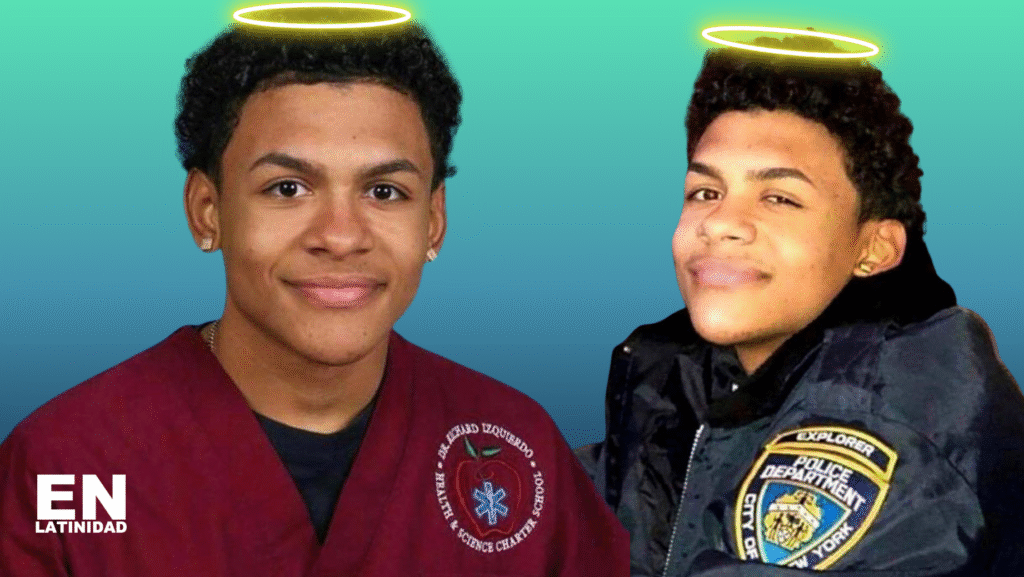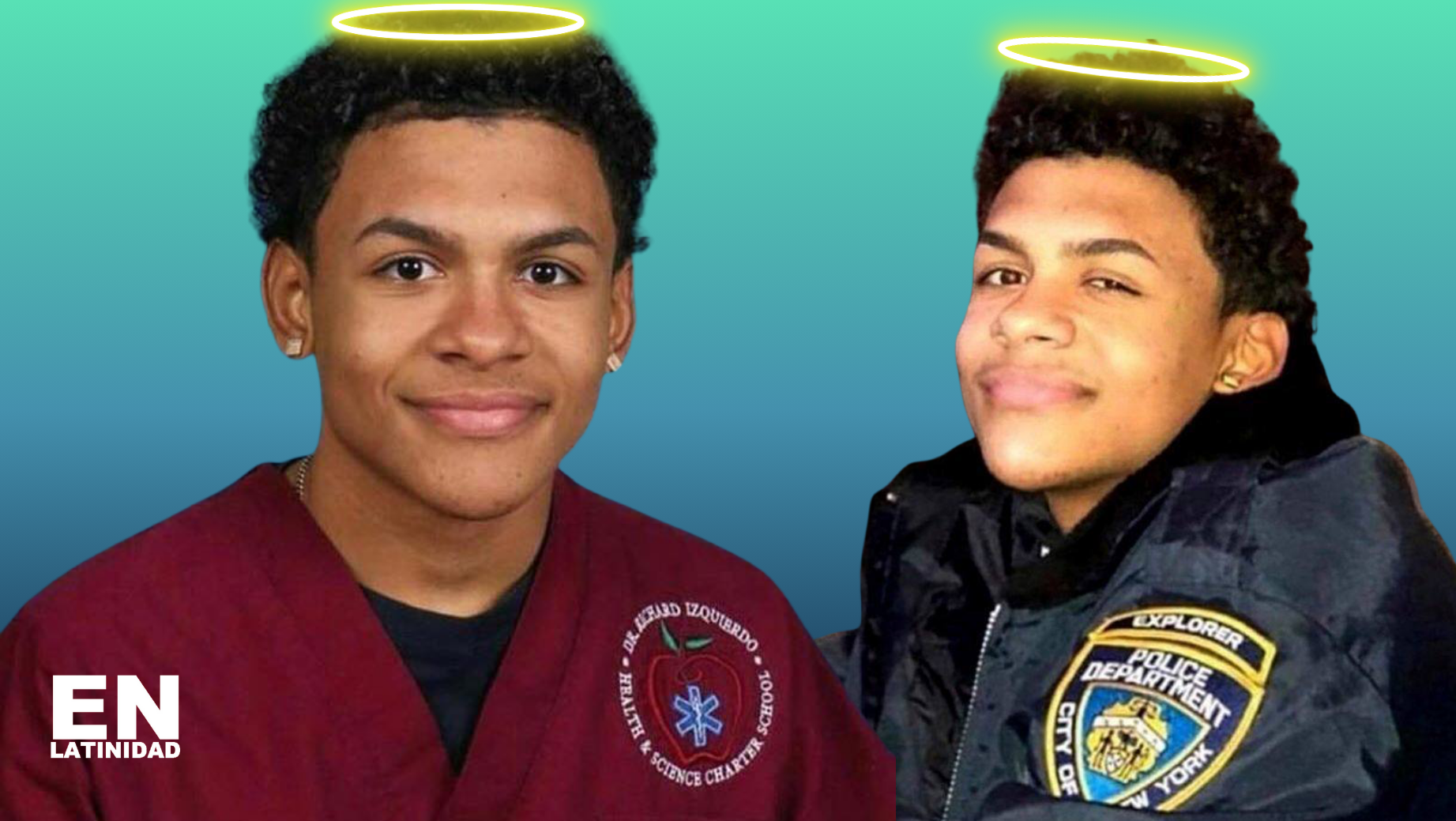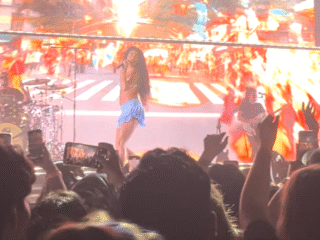Justice for Junior: The Story of Lesandro Guzman-Feliz and a Community’s Outcry
The tragic murder of 15-year-old Dominican American Lesandro “Junior” Guzman‑Feliz outside a Bronx bodega in June 2018 remains one of the most harrowing and unforgettable crime stories in recent New York City history. His death, at the hands of members of the Trinitarios gang, sparked international outrage and a powerful campaign known as #JusticeForJunior—and elicited solidarity from celebrities like Cardi B, who publicly supported the grieving family.

Heartbreak and horror gripped New York City in June 2018 when 15-year-old Dominican-American Lesandro “Junior” Guzman-Feliz was brutally murdered by members of the Trinitarios gang outside a Bronx bodega. The senseless killing—mistaken identity, caught on camera, and painfully public—sparked widespread outrage and a social media movement known as #JusticeForJunior. The story not only exposed the terror of gang violence but also raised questions about community responsibility, institutional protection, and the consequences of bystander inaction.
On the night of June 20, 2018, Junior was chased into Cruz & Chiky Grocery, a small bodega in the Belmont section of the Bronx, by a group of men affiliated with the Trinitarios gang. The teen was seeking safety, terrified and confused. Security footage later revealed that Junior tried to hide behind the counter, pleading for help. The bodega’s owner, Modesto Cruz—who later said he had known the boy since he was a child—allowed him to enter but hesitated to intervene forcefully. Cruz claimed he called 911 twice and tried to direct Junior toward a hospital, but fear for his own life led to inaction that many in the community would come to view as complicity. Moments later, the attackers returned, dragged Junior out of the store, and viciously stabbed him with knives and machetes. The boy staggered alone to a nearby hospital, where he collapsed and died.
The sheer brutality of the murder, coupled with the widespread sharing of surveillance footage, ignited global outrage. Junior, it turned out, had been mistaken for someone else. He was not affiliated with any gang—he was a good student and a member of the NYPD Explorers program, with dreams of becoming a police detective. In the days that followed, candlelit vigils flooded the Bronx, and a memorial bloomed outside the very store where his cries for help went unanswered. The hashtag #JusticeForJunior surged across social media, and murals bearing his image began appearing around the city.
In the months that followed, fourteen Trinitarios gang members were arrested and charged. In 2019, five of them—Jonaiki Martinez-Estrella, Manuel Rivera, Elvin Garcia, Jose Muniz, and Antonio Rodriguez Hernandez—were convicted of murder, gang assault, and other charges. They were initially sentenced to life without parole. However, in 2023, Martinez-Estrella’s first-degree murder conviction was overturned, reducing his sentence to 25 years to life. Just two years later, in 2025, he was found dead in his prison cell at Coxsackie Correctional Facility. His death was under investigation, but for Junior’s mother, Leandra Feliz, it brought a bitter kind of closure. “He deserved it,” she said bluntly, underscoring the enduring pain and rage of a grieving parent.
Leandra Feliz has remained a vocal figure throughout the ordeal, refusing to let her son’s story fade into silence. During the trial, she sat in court, surrounded by supporters wearing T-shirts bearing Junior’s image. When the convicted gang members issued apologies, her response was heartbreakingly direct: “There’s no sorry to bring back my son. Nothing is going to.” Her words resonated deeply with a public still shaken by the violence.
The murder also drew attention from celebrities and political leaders. Bronx-born rapper Cardi B donated $8,000 to the family’s GoFundMe and posted an emotional tribute to Junior on Instagram, calling the video of the attack “the most disgusting thing I’ve seen.” NBA player Carmelo Anthony and his wife LaLa visited the family and offered their condolences. Junior’s story had transcended the news cycle—it had become a symbol of how vulnerable young lives could be lost in an instant, how institutions could fail them, and how communities must protect their own.
In the aftermath, real steps were taken to honor Junior and prevent future tragedies. The corner of Bathgate Avenue and East 183rd Street was renamed “Lesandro Junior Guzman-Feliz Way,” and the NYPD established a scholarship in his name for Explorers with aspirations to join the force. The New York City Council also launched the “Safe Haven Bodega” program, enabling local stores to install panic buttons, reinforced doors, and direct NYPD response systems. The very bodega where Junior died was among the first to enroll.
But perhaps the most lasting impact has been the cultural shift that followed. Junior’s death laid bare the urgency of addressing gang violence in New York’s most vulnerable neighborhoods. It forced a conversation about how communities can—and must—respond when youth are in danger. It revealed the power of social media to galvanize action and hold people accountable. And it offered a painful reminder that heroism is often measured in seconds—whether one chooses to help, or hesitates.
Today, Junior’s image lives on in murals, in legislation, in youth programs, and in the collective memory of a city that refused to forget. His story is a tragedy—but it is also a call to action. A call for safer streets, for courageous bystanders, and for a justice system that values every child’s life. Junior Guzman-Feliz deserved better. And because of the outcry his death provoked, perhaps others will receive the protection he was denied.





Leave a Reply
You must be logged in to post a comment.